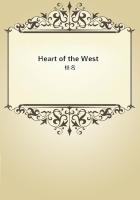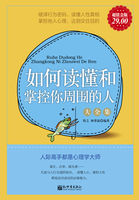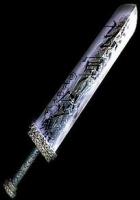What is the manner of occupation of the brain with a resuscitated feeling of resistance, a smell or a sound? There is only one answer that seems admissable.The renewed feeling occupies the very same parts, and in the same manner, as the original feeling, and no other parts, nor in any other assignable manner.I imagine that if our present knowledge of the brain had been present to the earliest speculators, this is the only hypothesis that would have occurred to them.For where should a past feeling be embodied, if not in the same organs as the feeling when present? It is only in this way that its identity can be preserved ; a feeling differently embodied would be a different feeling."
It is not plain from Professor Bain's text whether by the 'same parts' he means only the same parts inside the brain , or the same peripheral parts also, as those occupied by the original feeling.The examples which he himself proceeds to give are almost all cases of imagination of movement , in which the peripheral organs are indeed affected, for actual movements of a weak sort are found to accompany the idea.This is what we should expect.All currents tend to run forward in the brain and discharge into the muscular system; and the idea of a movement tends to do this with peculiar facility.But the question remains: Do currents run backward , so that if the optical centres (for example) are excited by 'association' and a visual object is imagined, a current runs down to the retina also, and excites that sympathetically with the higher tracts? In other words, canperipheral sense-organs be excited from above, or only from without? Are they excited in imagination ? Professor Bain's instances are almost silent as to this point.All he says is this:
"We might think of a blow on the hand until the skin were actually irritated and inflamed.The attention very much directed to any part of the body, as the great toe, for instance, is apt to produce a distinct feeling in the part, which we account for only by supposing a revived nerve-current to flow there, making a sort of false sensation, an influence from within mimicking the influences from without in sensation proper.-- (See the writings of Mr.Braid, of Manchester, on Hypnotism, etc.)"
If I may judge from my own experience, all feelings of this sort are consecutive upon motor currents invading the skin and producing contraction of the muscles there, the muscles whose contraction gives 'goose-flesh' when it takes place on an extensive scale.
I never get a feeling in the skin, however strongly I imagine it, until some actual change in the condition of the skin itself has occurred.
The truth seems to be that the cases where peripheral sense-organs are directly excited in consequence of imagination are exceptional rarities if they exist at all.In common cases of imagination it could seem more natural to suppose that the seat of the process is purely cerebral, and that the sense-organ is left out.Reasons for such a conclusion would be briefly these:
1) In imagination the starting-point of the process must be in the brain.Now we know that currents usually flow one way in the nervous system; and for the peripheral sense-organs to be excited in these cases, the current would have to flow backward.
2) There is between imagined objects and felt objects a difference of conscious quality which may be called almost absolute.It is hardly possible to confound the liveliest image of fancy with the weakest real sensation.The felt object has a plastic reality and outwardness which the imagined object wholly lacks.Moreover, as Fechner says, in imagination the attention feels as if drawn backwards to the brain;
in sensation (even of after-images) it is directed forward towards the sense-organ. The difference between the two processes feels like one of kind, and not like a mere 'more' or 'less' of the same. If a sensation of sound were only a strong imagination, and an imagination a weak sensation, there ought to be a border-line of experience where we never could tell whether we were hearing a weak sound or imagining a strong one.In comparing a present sensation felt with a past one imagined, it will be remembered that we often judge the imagined one to have been the stronger (see above, p.500, note).This is inexplicable if the imagination be simply a weaker excitement of the sensational process.
To these reasons the following objections may be made: To l): The current demonstrably does flow backward down the optic nerve in Meyer's and Féré's negative afterimage.Therefore it can flow backward; therefore it may flow backward in some, however slight, degree, in all imagination.
To 2): The difference alleged is not absolute, and sensation and imagination are hard to discriminate where the sensation is so weak as to be just perceptible.At night hearing a very faint striking of the hour by a far-off clock, our imagination reproduces both rhythm and sound, and it is often difficult to tell which was the last real stroke.So of a baby crying in a distant part of the house, we are uncertain whether we still hear it, or only imagine the sound.Certain violin-players take advantage of this in diminuendo terminations.After the pianissimo has been reached they continue to bow as if still playing, but are careful not to touch the strings.The listener hears in imagination a degree of sound fainter still than the preceding pianissimo.
This phenomenon is not confined to hearing:
"If we slowly approach our finger to a surface of water, we often deceive ourselves about the moment in which the wetting occurs.The apprehensive patient believes himself to feel the knife of the surgeon whilst it is still at some distance."
Visual perception supplies numberless instances in which the same sensation of vision is perceived as one object or another according to the interpretation of the mind.Many of these instances will come before us in the course of the next two chapters; and in Chapter XIX















